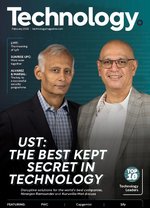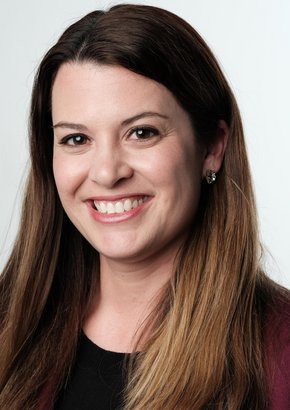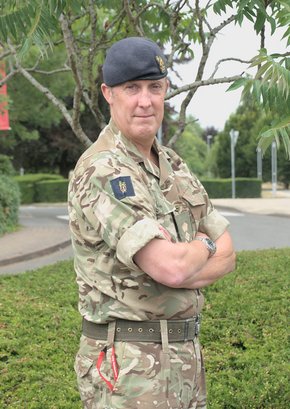
Adrian Byrne
CIO of University Hospital Southampton NHS Foundation Trust

The University Hospital Southampton NHS Foundation Trust (UHSFT) is a large acute hospital on the South coast of England. The Trust has many specialities and has a cancer centre, children’s hospital and women’s hospital all on the site.
At the heart of UHSFT’s digital transformation is its Chief Information Officer (CIO), Adrian Byrne. Byrne has worked for the Trust for just over 27 years and has held the position of CIO for just over 18.
Discussing his role, Byrne said: “My role involves looking at the whole of the digital environment within the Trust and what you'd expect to be within that. Of course, this includes IT, but also business intelligence, clinical coding, clinical systems, switchboard, health records, scanning service.”
“My focus is on the strategic level of IT management,” he added.
The executive’s role looks across strategy management for the whole organisation. “ We're always looking at a mixture of 3, 6 and 10 years ahead,” said Byrne.
Continuing he said: “You can really only ever see three. Then, I look externally at how the organisation's going to play into the integrated care service operation.”
With his extensive work with the NHS and as a CIO, Byrne was the chair for the National CIO Network.
“I was the chair for six years, but I'm still on the advisory panel for the Network,” Byrne explained.
Discussing his career journey, Byrne explained that like many other executives who hold the role of CIO, it has been “checkered.”
He said: “I have a hospital laboratory background originally and this morphed into an IT role, largely through the fact that hospital labs were some of the first people to use IT in a true business sense and ran their operation using IT.”
As a senior member of the Trust, Byrne is responsible for the team working on UHSFT’s digital strategy. In his leadership role, the CIO involves everyone in the decision-making process.
“I'm not an autocrat,” he said.
“A lot of our decisions are based on consensus. My team are all very senior IT people, so they all have their own specialities and their own domains. At a high level, we're broken down into IT, programme management, business intelligence and the systems and services environment that we run. We regularly get together to talk about what our operational pressures are and our strategic view of the world and where we're going next,” explained Byrne.
To ensure the success of the Trusts digital transformation, Byrne works closely with the clinical parts of the organisation. Explaining the good relationship between these factions of the trust, Byrne explained: “We have to lead in IT function, but we have to be able to deliver things that are useful in the hospital and that people working in the clinical parts of the organisations want to have. We also want to ensure we have their trust in us.”
Concluding, Byrne outlined the changes within the Trust over the 18 years where he has held the role of CIO: “We are now utilising remote technology generally much more, both in terms of meetings, but clinical sessions happen over this kind of technology, as well, both internally for multidisciplinary team meetings and for patient consultations.”
Read the full story HERE.
Featured Interviews
It’s not just about mission – it is about a whole-of-enterprise transformation. The way you maintain superiority is through digital transformation, culture and process reform, and rapid adoption of commercial technology.






